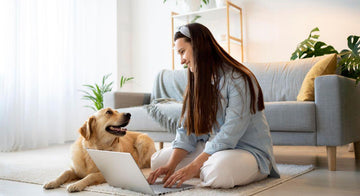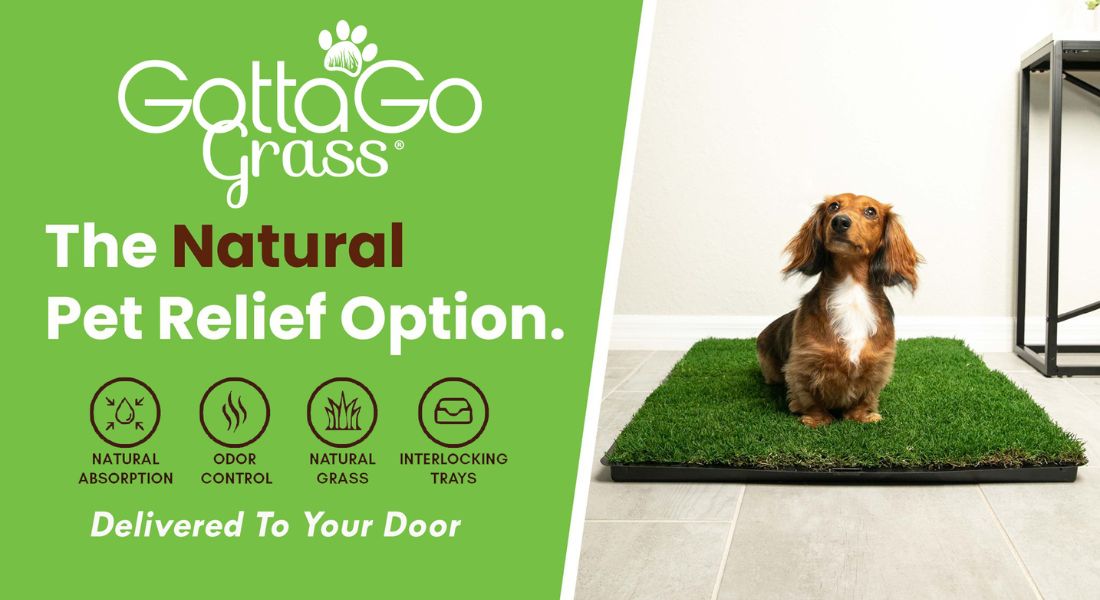
Pet ownership and city living may not seem to go well together. It initially looks challenging, but dogs living in urban environments have become commonplace in the past few years. This shift is largely attributed to the more relaxed urban policies and a growing recognition of the joy of having a canine companion.
Living in a city with a dog may require additional effort to ensure your pet is happy, healthy, safe, and well-adjusted. The limited space and often the lack of a private backyard can make providing necessary play and potty areas challenging. But, despite these difficulties, raising a healthy dog in the city can be just as rewarding as anywhere else, even if it requires a few extra measures to thrive in a smaller, busier home.
10 Tips for Raising a Dog in the City
As dog owners, the key to raising your dog successfully in an urban setting is building routines, providing plenty of support and enrichment, and ensuring their innate needs are met, starting with their bathroom needs. Whether you've welcomed a new puppy or relocated with your dog to a city apartment, here are some tips to help you navigate urban life.
Understand the Rules
Regardless of where you live, it's essential to be aware of city rules to avoid costly violations or, worse, losing your dog. Some cities fine pet owners for not cleaning up after their dogs, not leashing them during walks, or not using a crate or dog carrier on public transport. Other cities require pet registration and licensing or enforce specific leash and training rules for certain breeds.
Build a Routine
Dogs thrive on routine—it provides them with predictability, which can make them feel more secure and settled in their new environment. Create a consistent schedule for feeding, walking, and bathroom breaks. Take your dog out for potty breaks after waking up, 15 minutes after meals, or 3-5 times throughout the day.
House Train
Start house training as soon as you bring your puppy home to teach them where and when it's appropriate to relieve themselves. Tools such as grass pads for dogs can provide an alternative when taking your dog outdoors is challenging. It reinforces good potty habits and reduces the likelihood of accidents indoors by providing a familiar space to relieve themselves.

Crate Train
Crate training can be valuable during house training, particularly for apartment dogs. Based on the idea that dogs are naturally inclined not to soil their sleeping area, crates can help puppies learn to hold their bladder and strengthen their bowel muscles. When selecting a crate, ensure it's large enough for your dog to comfortably turn around, stand up, and lie down without feeling cramped. A crate with a divider panel can be particularly useful, as it allows the crate to grow with your dog or accommodate larger breeds.
Puppy Proof
Puppy-proofing your apartment is essential to create a safe and nurturing environment for your dog. Some steps include installing pet doors to limit their access, removing potentially toxic plants, securing electrical cords to prevent chewing, and keeping cleaning supplies out of reach to ensure your dog's safety.
READ: Why Do Dogs Pee in the House?
Socialize
Exposing your dog to new people, other animals, and environments can help build their confidence and adopt the right temperament in urban settings. Dog parks provide a safe space for your pup to engage with other dogs, play off-leash, and become more comfortable with new environments and experiences.
Hire a Dog Walker
Ensuring your dog gets enough exercise daily is crucial to prevent weight gain and boredom, particularly in the city where space may be limited. Consider hiring a dog walker or enrolling your pup in doggy daycare to meet their exercise needs and provide them with opportunities to socialize with other dogs.

Provide Mental Stimulation
In addition to physical activities, city dogs require mental stimulation to prevent boredom and behavioral issues. Puzzle toys like treat-dispensing balls or interactive feeders encourage problem-solving skills and help relieve stress. Games as simple as hide-and-seek with treats can also serve as a mental exercise.
Stop the Barking
Dogs, particularly small breed dogs, can be noisy—an issue in close living quarters where thin walls separate neighbors. However, dogs bark for various reasons, including boredom, hunger, or anxiety. So, it's important to address any underlying issues causing the behavior. It may involve providing more mental and physical stimulation, ensuring they are fed adequately, and creating a peaceful environment to reduce anxiety triggers.
Provide Adequate Nutrition
A balanced diet in dogs is crucial for maintaining a healthy weight, supporting their immune system, and providing the energy they need for city living. If you have a new pup, it's particularly important to consult your vet to ensure they receive adequate nutrition for their development. A diet for young dogs should include high-quality puppy food, transitioning to adult dog food as they mature.

Takeaway
Moving to the city can be a significant adjustment for your dog, particularly if they're used to quieter surroundings. Give them time to adapt to their new environment—be patient and understanding. Much like no one would expect it from you, don't expect them to adjust overnight. Remember, your dog looks to you for comfort and security, so be their safe space during this transition. With time and patience, your dog will eventually thrive in their new, bustling home.
For city-life solutions like dog grass pads for apartments, visit the Gotta Go Grass® website today!




